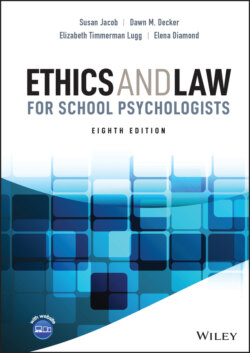Читать книгу Ethics and Law for School Psychologists - Susan Jacob - Страница 69
The 10th Amendment
ОглавлениеThe Constitution does not specifically refer to education as a duty of the federal government. Under the 10th Amendment, “The powers not delegated to the United States by the Constitution, nor prohibited by it to the states, are reserved to the states respectively, or to the people.” Thus, under the 10th Amendment, state governments have assumed the duty to educate, the power to tax citizens of the state to finance education, and the power to compel school attendance.
Both federal and state governments have an interest in an “educated citizenry,” as educated citizens are more capable of self-government and of making a positive contribution to community life (Hubsch, 1989). Most states delegate much of the authority for the management of public schools to local school boards. Public schools consequently are considered to be an arm of the government (Russo, 2018). Thus, when school boards, principals, teachers, and school psychologists make decisions in their official roles, their actions are seen as actions by the state. A public education is considered to be an entitlement given by the state to its citizens under state constitutional or statutory law. On the basis of state law, all children within a state have a legitimate claim of entitlement to a public education. This right to a public education given by state law is considered to be a property right.
